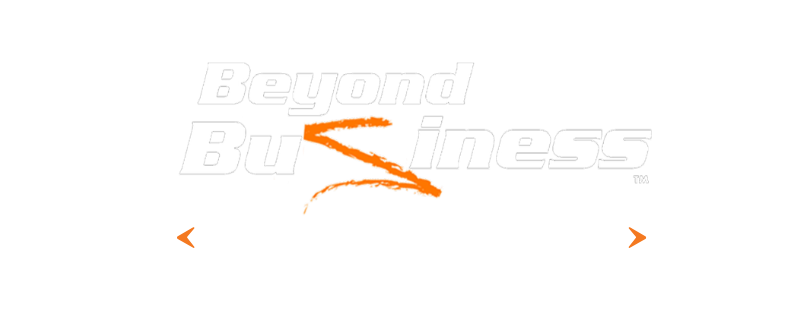The day I started my first business, I realized a big problem – I didn’t know how to actually start. So, I did what seemed logical: I sat down at our kitchen table, armed with a pencil and a pad of paper, and made a list of five possible business names, starting with “Safety Sparklers.” Thankfully, my mom stepped in later that night and suggested the name Board Blazers, or the company might never have made it out of the kitchen.
After a unanimous vote by all three board members the next day – me, myself, and I – we adopted the name, and Board Blazers was officially born. Sure, I could’ve spent thousands of dollars and taken weeks to craft the perfect name, but it wouldn’t have helped without a clear plan. Besides, I didn’t have the money for all that. Looking back, I just wish I’d known two tricks to pick the perfect business name: Be descriptive, or go abstract. Just don’t do both.
Pin this image for later!
Be Descriptive
The best business names often clearly describe what the business does. Think of the Fortune 500 list, which includes Bank of America, The Home Depot, and General Motors, despite their seemingly “boring” names. Take a guess what product International Paper makes – pretty simple, right?
Now I get it: as the founder of a dazzling, innovative, extraordinary new business, you want to pick a name that’s creative, inspiring, and visionary. But you don’t need to get cute. Spend your time, effort, and money on more important things, and let your outstanding products or services be your point of differentiation instead. For the descriptive approach to work, imagine how you’d describe what your business does to someone you don’t even like. That’s the kind of short, no-nonsense language that often works best. Simply describe what you as clearly as possible.
“Imagine how you’d describe what your business does to someone you don’t like.”
This technique has a few advantages. Most importantly, it makes your business easy to find and communicate. Can you imagine how often the CEO of Exyte (an energy company) has to repeat himself? Poor guy. Second, a descriptive name conveys trust and authority. For more traditional industries, like healthcare, engineering, and banking, a descriptive name is imperative to establish consumer confidence. And lastly, a descriptive name can be easier to brand, because of the meaning already associated with the words you choose. Take 24 Hour Fitness, for example: it’s a gym that’s open 24 hours daily. Got it.
Go Abstract
The alternative to a descriptive name is to make up something totally abstract. It can be a unique name, sound, or expression – and it doesn’t even have to be a real word! Verizon, Boeing, and Pepsi are all great examples of this approach.
Abstract names are ideal for companies that want to convey a spirit of creativity and innovation. To create a wacky name, have fun! Study emotions, thoughts, and associations that you want your customers to have about your brand, and see how many ways you can combine them. Or, start with a list of descriptive names, using the techniques above. Then go a step further and combine those words into an abstract phrase. For an extra twist, try creating a portmanteau – a word blending the sounds and meanings of two others (like podcast, brunch, and smog). Netflix and Comcast are two prime examples of this approach.
For many creative industries, abstract names have distinct advantages. Above all, abstract names can be easier to claim and defend. Domains and trademarks are often more readily available and less likely to conflict. Abstract names can also be free of negative connotations, particularly beneficial for less-desirable industries (Exxon Mobile petroleum, for example). And creative expressions, like Twitter, can convey a spirit of imagination and lightheartedness for tech, communication, and entertainment businesses. Keep in mind, however, that all of these advantages can become disadvantages for some companies, particularly upscale brands or those in more “serious” industries.
When It All Goes Wrong
Above all, don’t fall in the middle. Take Starbucks, for example: what do stars and bucks have to do with coffee? No idea. While they’ve overcome this ambiguity with a massive advertising budget, the expense and effort needed to brand two seemingly unrelated words is unnecessarily high for a new business. For business names, be concrete, or be creative, but don’t try to be both.
“For business names, be concrete, or be creative, but don’t try to be both.”
You don’t need formal focus groups, world-changing mission statements, or luxurious team-building retreats to create the perfect name. Even the internet’s most famous domain, Google, came from an early misspelling of the word “googol” by founder Larry Page. Clearly, picking the perfect business name doesn’t have to be expensive, difficult, or complex. But even if you really get stuck, relax — you can always Google it.
Adapted from Greg’s upcoming book, The Entrepreneur in You →

